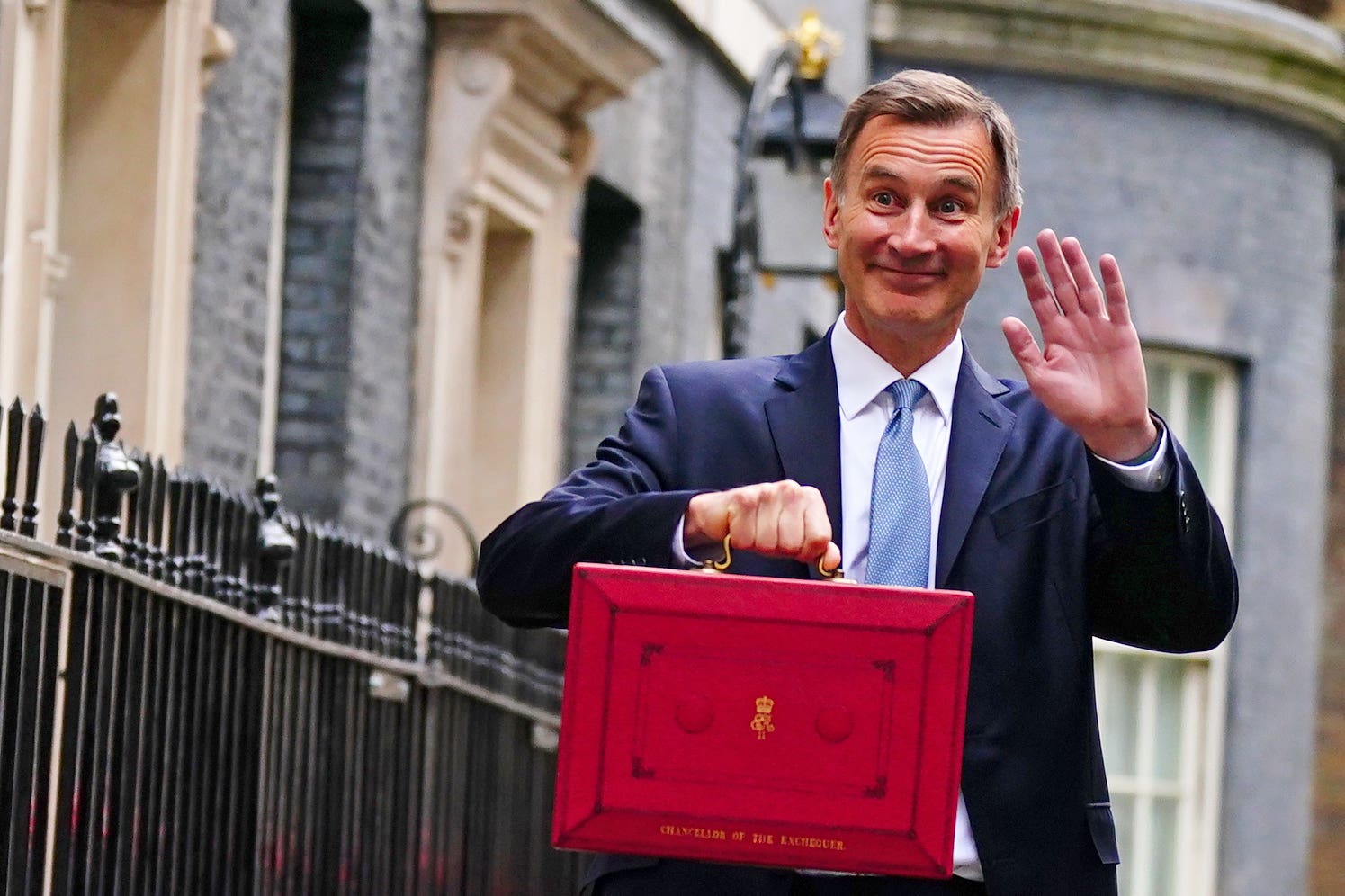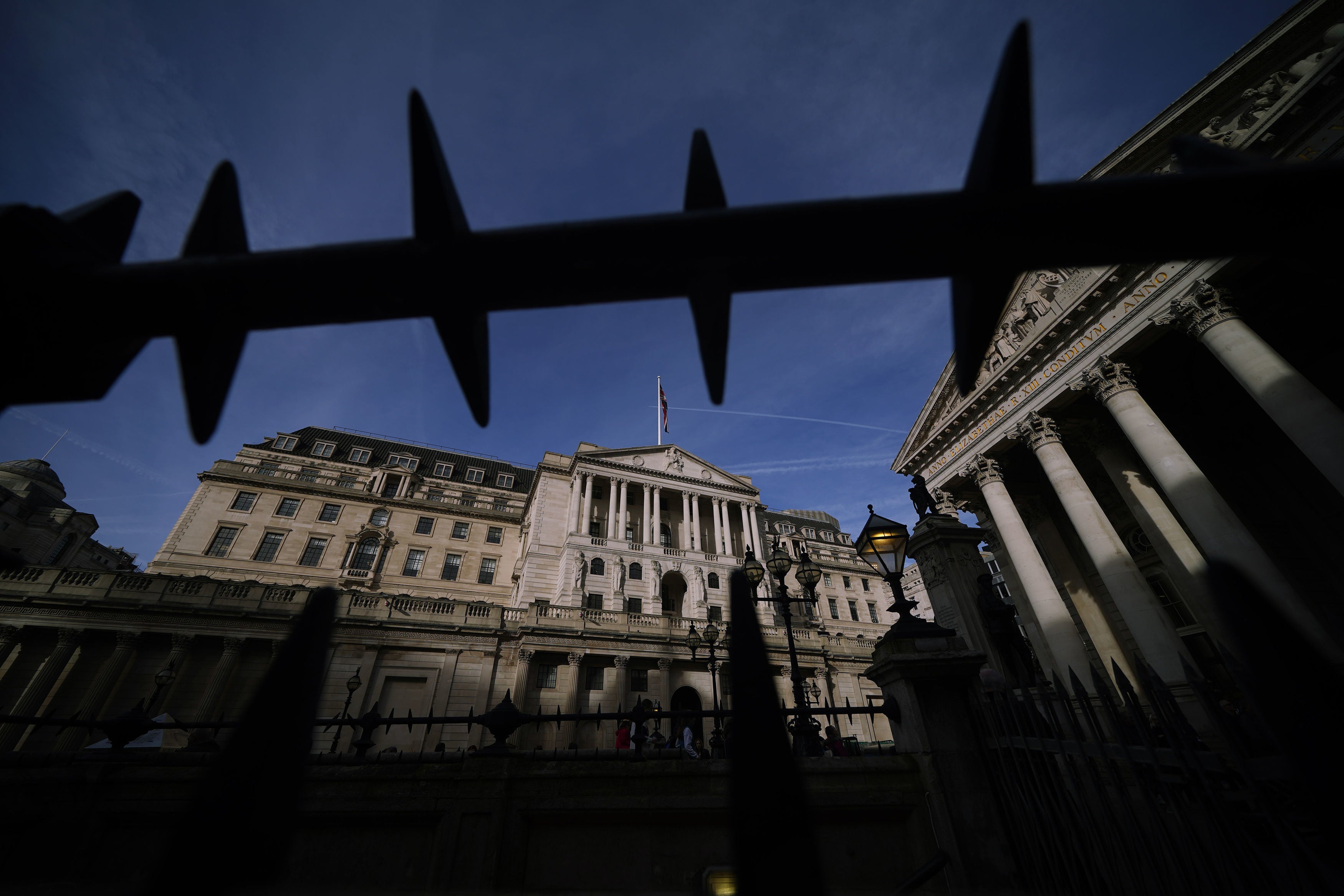Drones and AI to help free up NHS and police time says Hunt, in £1.8bn Budget efficiency push
Top economists warn chancellor against cutting public spending
Your support helps us to tell the story
From reproductive rights to climate change to Big Tech, The Independent is on the ground when the story is developing. Whether it's investigating the financials of Elon Musk's pro-Trump PAC or producing our latest documentary, 'The A Word', which shines a light on the American women fighting for reproductive rights, we know how important it is to parse out the facts from the messaging.
At such a critical moment in US history, we need reporters on the ground. Your donation allows us to keep sending journalists to speak to both sides of the story.
The Independent is trusted by Americans across the entire political spectrum. And unlike many other quality news outlets, we choose not to lock Americans out of our reporting and analysis with paywalls. We believe quality journalism should be available to everyone, paid for by those who can afford it.
Your support makes all the difference.Jeremy Hunt has announced a “public sector productivity drive” in a bid to improve services without ramping up government spending.
The government says its new measures are part of its plan to move on from the “high spending and high tax approach” that was necessary to “get the UK through the shocks of Covid and Russia’s invasion of Ukraine”.
The plans are announced just days before Mr Hunt will deliver his spring Budget in which he is widely anticipated to introduce further tax cuts in the hope of boosting electoral prospects.
The £800m investment in public services represent a “new focus” on the “long-term decisions required to strengthen the economy and give people the opportunity to build a wealthier, more secure life for themselves and their family”, the Treasury said.

The announcement features a number of cost-saving measures, including the implementation of artificial intelligence and digitisation across government and the creation of 200 additional child social care places in England.
The government said the measures will also “free up thousands of police officer hours spent on admin” by rolling out time-saving technologies like drones. It will also see over 130,000 patients, including those waiting for cancer results, receive their test results sooner.
It said the changes, due to be in Wednesday’s Budget, have the potential to deliver £1.8bn worth of benefits to public sector productivity by 2029.
Mr Hunt is facing pressure to prioritise tax cuts over further public spending as Conservative backbenchers warn the chancellor that only tax-cuts can reverse their electoral fortunes.
But hopes of large tax cuts have been dampened as economists have warned against any reductions in public sector spending.
The International Monetary Fund (IMF) said that tax cuts would be “very challenging to achieve” considering Britain’s ageing population and mounting debt pile, while the Institute for Fiscal Studies said the chancellor should not announce the tax cuts unless he can “provide more detail on its spending plans”.
Recent forecasts from the Office for Budget Responsibility (OBR) have given the chancellor less fiscal headroom than previously thought, leading him to consider unexpected tax rises such as abolishing the non-dom tax status.
Last week the OBR informed the government that it would have about £13bn of fiscal headroom in the spring Budget, of which Mr Hunt will leave about £6bn in reserve.
Typically, chancellors leave themselves £25bn of headroom to cope with changes in interest rates and inflation without needing to change tax and spending policies, but the chancellor’s room for manoeuvre has been heavily impacted by inflation falling faster than expected, resulting in lower tax revenues, and increased borrowing costs.

The plans announced on Sunday show the chancellor is still eyeing up ways to reduce public spending as the treasury suggest that the proposed measures could return the UK to pre-pandemic levels of productivity.
As part of the measures, the Department for Work and Pensions will “move away from paper-based communications” and planning applications will be sped up through the use of a new AI pilot.
The government also plan to invest £170m into the justice system which it says will save up to 55,000 hours a year of administrative time through the digitisation of jury bundles and the introduction of new software and more robust data.
Introducing the plans, Mr Hunt said: “We shouldn’t fall into the trap of thinking more spending buys us better public services.”
“There is too much waste in the system and we want public servants to get back to doing what matters most: teaching our children, keeping us safe and treating us when we’re sick,” he added.
“That’s why our plan is about reaping the rewards of productivity, from faster access to MRIs for patients to hundreds of thousands of police hours freed up to attend burglaries or incidents of domestic abuse.”
Darren Jones MP, Labour’s shadow chief secretary to the treasury, said: “Nothing in Britain is better off after 14 years of Conservative economic failure.
“Millions of people are stuck on hospital waiting lists, our schools are crumbling and our streets are less safe. And yet all the chancellor is offering is more spin without substance.”
He added: “It’s time for change. Only Labour offers a long-term plan to grow our economy to deliver more jobs, more investment and to put more money in people’s pockets.”

Join our commenting forum
Join thought-provoking conversations, follow other Independent readers and see their replies
Comments